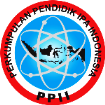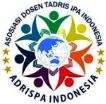Self-Efficacy of the Elementary School Pre-Service Teacher Students in Science Learning
Abstract
This study aimed to examine the self-efficacy profile of pre-service teachers from the Islamic Elementary School Teacher Education Program at Universitas Islam Negeri Syekh Ali Hasan Ahmad Addary in Padangsidimpuan, specifically focusing on their science teaching self-efficacy. Using a descriptive quantitative research design with a survey method, the study utilized a 26-item self-efficacy questionnaire. The data were analyzed descriptively, calculating the average percentage of students who demonstrated self-efficacy for each criterion within the corresponding indicators. The research involved 180 out of 207 fifth-semester students enrolled in the 2024/2025 academic year. A Google Form survey, structured according to the Science Teaching Self-Efficacy Belief Instrument (STEBI), assessed two key indicators: Science Teaching Outcome Expectancy (STOE) and Personal Science Teaching Efficacy (PSTE). Modifications were made to align the indicators with the specific context and characteristics of the participants. Additionally, a small group of respondents was interviewed. Findings revealed that 14.2% of students strongly agreed with the PSTE criterion, while 54.9% agreed. For STOE, 20.7% strongly agreed, and 51.1% agreed. When combining both indicators, 68.9% of students exhibited a high level of self-efficacy in PSTE, and 71.8% in STOE. Overall, the majority of aspiring MI/SD teachers demonstrated high self-efficacy in their science teaching abilities.
Keywords: MI/SD pre-service teacher students; self-efficacy; science learning
Full Text:
PDFReferences
Arianto, F., & Hanif, M. (2024). Evaluating Metacognitive Strategies and Self-Regulated Learning to Predict Primary School Students’ Self-Efficacy and Problem-Solving Skills in Science Learning. Journal of Pedagogical Research, 8(3), 301–319. Scopus. https://doi.org/10.33902/JPR.202428575
Bandura, A. (1977). Self-Efficacy: Toward a Unifying Theory of Behavioral Change. Psychological Review, 84(2), 191–215. https://doi.org/10.1037/0033-295X.84.2.191
Bandura, A. (1997). Self-Efficacy: The Exercise of Control. Freeman and Company.
Bartimote-Aufflick, K., Bridgeman, A., Walker, R., Sharma, M., & Smith, L. (2016). The Study, Evaluation, and Improvement of University Student Self-Efficacy. Studies in Higher Education, 41(11), 1918–1942. https://doi.org/10.1080/03075079.2014.999319
Belova, T., Islamov, A. E., Rozhnov, A. A., Zhdanov, S. P., Sokolova, E. I., & Tsomartova, D. A. (2024). Do Gender and Science Success Moderate The Effects of Science Learning Self-Efficacy on Science Identity? Frontiers in Education, 9. Scopus. https://doi.org/10.3389/feduc.2024.1409077
Creswell, J. W. (2014). Research design: Qualitative, quantitative, and mixed methods approaches (4th ed.). SAGE Publications.
Fauziana, F. (2022). Pengaruh Self Efficacy Terhadap Kemampuan Memecahkan Masalah IPA. PIONIR: Jurnal Pendidikan, 11(1), Article 1. https://doi.org/10.22373/pjp.v11i1.13138
Hasbi, J. E., Chandra, D. T., & Liliawati, W. (2022). Inquiry Learning Using Flipped Classroom Approach to Improve Students Self Efficacy in Dynamic Fluid Material. Journal of Natural Science and Integration, 5(2), Article 2. https://doi.org/10.24014/jnsi.v5i2.16715
Hodges, C. B. (2008). Self-efficacy in The Context of Online Learning Environments: A Review of The Literature and Directions For Research. Performance Improvement Quarterly, 20(3–4), 7–25. https://doi.org/10.1002/piq.20001
Kartimi, K., Anugrah, I. R., & Addiin, I. (2021). Systematic Literature Review: Science Self-Efficacy in Science Learning. Al-Khwarizmi : Jurnal Pendidikan Matematika Dan Ilmu Pengetahuan Alam, 9(2), Article 2. https://doi.org/10.24256/jpmipa.v9i2.2048
Lin, X.-F., Wong, S. Y., Zhou, W., Shen, W., Li, W., & Tsai, C.-C. (2024). Undergraduate Students’ Profiles of Cognitive Load in Augmented Reality–Assisted Science Learning and Their Relation to Science Learning Self-efficacy and Behavior Patterns. International Journal of Science and Mathematics Education, 22(2), 419–445. Scopus. https://doi.org/10.1007/s10763-023-10376-9
Morales-Navarro, L., Giang, M. T., Fields, D. A., & Kafai, Y. B. (2024). Connecting beliefs, mindsets, anxiety and self-efficacy in computer science learning: An instrument for capturing secondary school students’ self-beliefs. Computer Science Education, 34(3), 387–413. Scopus. https://doi.org/10.1080/08993408.2023.2201548
Özcan, B., & Kültür, Y. Z. (2021). The Relationship Between Sources of Mathematics Self-Efficacy and Mathematics Test and Course Achievement in High School Seniors. Sage Open, 11(3), 21582440211040124. https://doi.org/10.1177/21582440211040124
Riggs, I. M., & Enochs, L. G. (1990). Toward The Development Of An Elementary Teacher’s Science Teaching Efficacy Belief Instrument. Science Education, 74(6), 625–637.
Saputra, M. R., & Kurniawati, A. D. (2024). Literature Review Dampak Pembelajaran Dengan Pendekatan Hands on and Minds on terhadap Self Efficacy Matematis Siswa. DIKMAT: Jurnal Pendidikan Matematika, 5(02), Article 02. https://doi.org/10.56842/dikmat.v5i02.268
Sukmadinata, N. S. (2010). Metode penelitian pendidikan. Remaja Rosdakarya.
Tillotson-Chavez, K., & Weber, J. (2024). A New Generation of Citizen Scientists: Self-Efficacy and Skill Growth in a Voluntary Project Applied in the College Classroom Setting. Citizen Science: Theory and Practice, 9(1). Scopus. https://doi.org/10.5334/cstp.641
Waddington, J. (2023). Self-efficacy. ELT Journal, 77(2), 237–240. https://doi.org/10.1093/elt/ccac046
Wilujeng, I. (2009). “SELF EFFICACY” Awal Mahasiswa Pendidikan Ipa Fmipa Uny Untuk Menjadi Calon Guru Ipa Smp.
Zhu, J.-B., & Luo, Y.-Z. (2024). The Prediction Of Science Achievement With Science Identity And Science Learning Self-Efficacy Among China’s Upper-Secondary Students. Journal of Baltic Science Education, 23(2), 390–410. Scopus. https://doi.org/10.33225/jbse/24.23.390
DOI: http://dx.doi.org/10.24014/jnsi.v8i1.34747
Refbacks
- There are currently no refbacks.

Journal of Natural Science and Integration
E-ISSN: 2620-5092 P-ISSN: 2620-4967
Published By:
Department of Science Education, Faculty of Education and Teacher Training,
State Islamic University of Sultan Syarif Kasim Riau, Indonesia
Mailing Address:
Jl. H.R Soebrantas Km. 15 No. 155
Kelurahan Simpang Baru
Kecamatan Tuah Madani, Pekanbaru, Riau, Indonesia
Email: jnsi.tadrisipa@uin-suska.ac.id
Indexed By:
Journal of Natural Science and Integration is licensed under a Creative Commons Attribution 4.0 International License.


_-_Copyy2.png)






.jpg)
.png)
.jpg)
.jpg)




